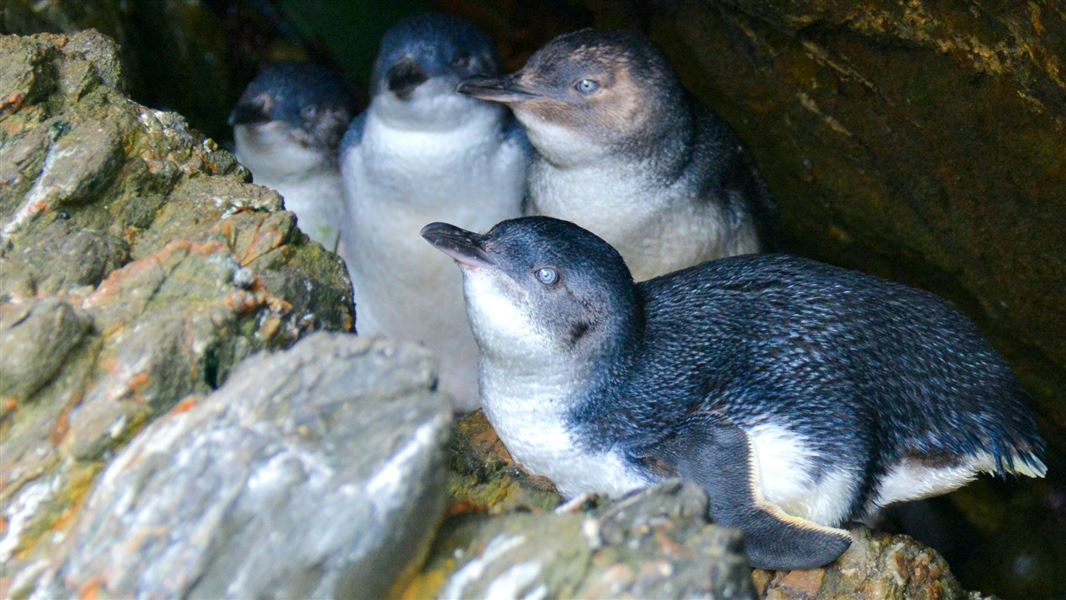Archived content: This media release was accurate on the date of publication.
Date: 11 September 2020
For some Kāpiti residents, the arrival of spring means warmer weather and penguins nesting under their homes. Commonly nesting under floorboards, they are a treasured (if fishy-smelling and noisy) houseguest. For those who aren’t as lucky to have these taonga nesting in their area, a brand-new livestream allows us to peek inside the lives of a nesting pair as they prepare for the upcoming breeding season.
Kororā are incredibly loyal birds, often returning to nest only metres from where they were hatched. They can come ashore at any time of the year but spend much of their time out at sea feeding on fish and squid. Between August and December, they come ashore to nest and raise the next generation of little blue penguins.
“We expect this pair to lay up to 2 eggs which will incubate for 36 days,” says Emma Hill, Technical Advisor at DOC. “One parent will forage at sea while the other tends the nest and chicks, swapping duties every few days. As this species is classed as 'At Risk - Declining', breeding season is a crucial time to protect them and ensure their long-term survival”.
Found in New Zealand and southern Australia, kororā were once abundant around the coast, but most now live on offshore islands. Where they do exist on the mainland, they are vulnerable to dogs, predators and are also facing pressure from coastal development.
“Kororā are easily disturbed by humans,” says Emma, “if you find a nesting pair, leave them alone. DOC or your local community group can help if you think they are in danger. This livestream is the perfect opportunity for us to experience kororā up close while giving them the space they need.”
With support from DOC and Air New Zealand through the Marine Sentinel Sites Programme, the Kāpiti Coast Biodiversity Project works to protect kororā populations all along the Kāpiti Coast.
“For the past five years we have been working with communities on the Kāpiti Coast to raise awareness and promote the conservation of this vulnerable species”, says Glenda Robb, the KCBP Programme Manager.
"We strongly recommend people do not go out looking for these shy and easily frightened little birds. If scared on their journey to and from nesting sites, kororā can abandon eggs or chicks. People can help kororā by keeping their dog on a lead and encouraging others to do the same. Backyard pest trapping and joining groups to plant vegetation or clear plastic from beaches also help to keep kororā safe."
“Every little bit counts for a species in decline and our local communities work hard to protect the small colonies of kororā that still come ashore on our beaches.”
The Marine Sentinel Sites Programme, supported by funding from Air New Zealand, aims to grow the understanding and awareness of our moana (ocean) through collaborative research projects.
The Kāpiti Kororā Cam is the latest in a series of web cams installed by Groundtruth for conservation organisations around the country. View the Kāpiti Marine Reserve Cameras installed for Guardians of the Kāpiti Marine Reserve on their website.
View the Kāpiti Kororā Cam on:
Contact
For media enquiries contact:
Email: media@doc.govt.nz
